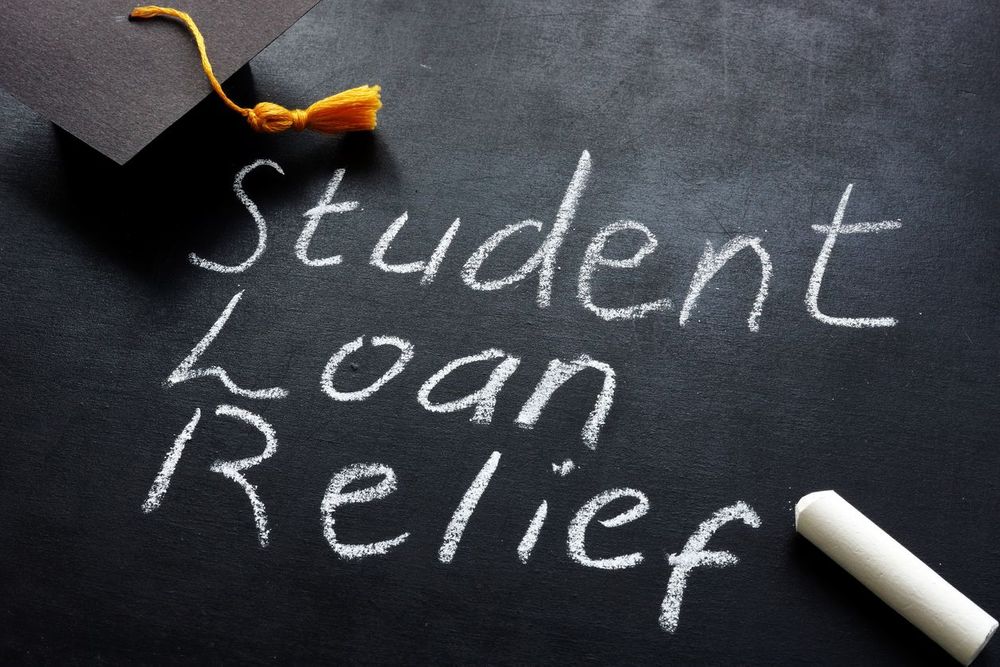
It's no secret that President Biden recently forgave millions of dollars in student loans. Individuals who received Pell Grants received up to $20,000 in loan forgiveness, and others received up to $10,000 in forgiveness. But who actually qualifies for this debt forgiveness, and what does it mean for you? Learn the facts about the loan forgiveness plan, and you can prepare for the future.
Currently, there are approximately $1.62 trillion in federal student loans. Biden's plan for loan forgiveness relieves debt to many individuals who have federal loans. In fact, the plan affects over 40 million individuals. It erases a total student debt of almost 20 million.
With that said, you probably want some specifics. If an individual earns under $125,000 a year, they qualify for as much as $10,000 in loan forgiveness. Couples also can qualify as long as they make less than $250,000 a year. Current students and prior students all have the potential to qualify for forgiveness. If you're a current student and are a dependent of your parents, you qualify based on your parents' income. Parent PLUS loans also qualify for forgiveness.
Pell Grant recipients receive even more loan forgiveness. And considering that 60% of student loan borrowers received Pell Grants, you can imagine how many people benefit from this particular part of the plan.
While most borrowers are excited about loan forgiveness, few of them understand the next steps. First, you would need to submit an application and show your income. But you may already have your income on file. According to the Education Department, almost 8 million borrowers already have their income information updated. Those borrowers don't need to do anything to qualify for the forgiveness.
Unfortunately, there's not much more information available about student loan forgiveness. It will be a process, and there is no firm timeline. For more information, you can go to https://studentaid.gov/debt-relief-announcement/. You can also sign up for alerts, so you're one of the first to know when the government has news about the program.
There should be no expectation that this forgiveness will happen quickly. Because it's a new system, it will probably bring a few bumps and struggles.
Part of Biden's plan affects monthly payments. Known as income-driven repayment, IDR is a system that cuts the amount of money borrowers need to pay towards their loans every month. Previously, borrowers needed to pay 10% of their discretionary income towards their loans. But now, the ratio drops to 5%.
The new requirements also increase the amount of non-discretionary income. As a result, borrowers have a little less of a financial burden. Going forward, this could have a significant impact on college students and graduates.
Not everyone benefits from this program. Although millions of people benefit from loan forgiveness, there are still those who have significant college debt. What can you do to improve your financial situation?
Before you start worrying about your future, you should know that there are a few things you can do to improve your finances. Here are a few tips:
Before you do anything else, figure out how much money you owe loan providers. This is easier said than done. As lenders often sell their loans and rates change, it can be difficult to track down exactly how much you owe. Calculate the total amount of debt you have, and then you can start to plan to pay it down.
While you crunch the numbers, figure out which loans have the highest interest rate. Those are the ones you want to pay off first.
For some borrowers, loan consolidation is a good idea. This is usually the case when you have high-interest rates. By consolidating all of your loans, you can save money and make your life easier.
Just be wary of rushing into consolidation. Your best option could be to discuss the matter with a financial advisor. After they analyze the situation, they can let you know more about your options.
Some people don't realize that deferment is an option. If you lose your job or experience another type of financial hardship, you may be able to defer your loans. This gives you time to get back on your feet.
Of course, there are disadvantages to deferment. You essentially put off the loan and hang onto the debt for longer. And if you don't have a federal loan, deferment might not be an option. Your only option could be forbearance, which continues to accrue interest.
If you aren't earning as much as you should, it may be time to ask for a raise. Every year, look at salaries for your job. Spend a few hours researching how much the average person in your position makes. Then, determine whether or not you're receiving a fair salary. It could be time to ask for a raise.
When you bring up the topic, don't talk about your financial hardship. Rather, be prepared to discuss what you bring to the company. Cite specific achievements and measurable goals. If you can show your employer that you deserve a raise, they're likely to give you one. Take your time preparing for the conversation, and don't rush into it.
If your boss denies your request for a raise and you know you have a higher earning potential, it's time to start looking at other jobs. You don't need to switch careers to find a better paying job. Before you struggle to pay the bills, explore other employers. Apply for positions with higher salary ranges, and you might find it easier to pay off your loans.
In some cases, you may only need a certification or course to qualify for a higher-paying job. Do what it takes to qualify, and start applying for those jobs. Your student loans might not haunt you for as long as you think.
Lorem Ipsum is simply dummy text of the printing and typesetting industry. Lorem Ipsum has been.
